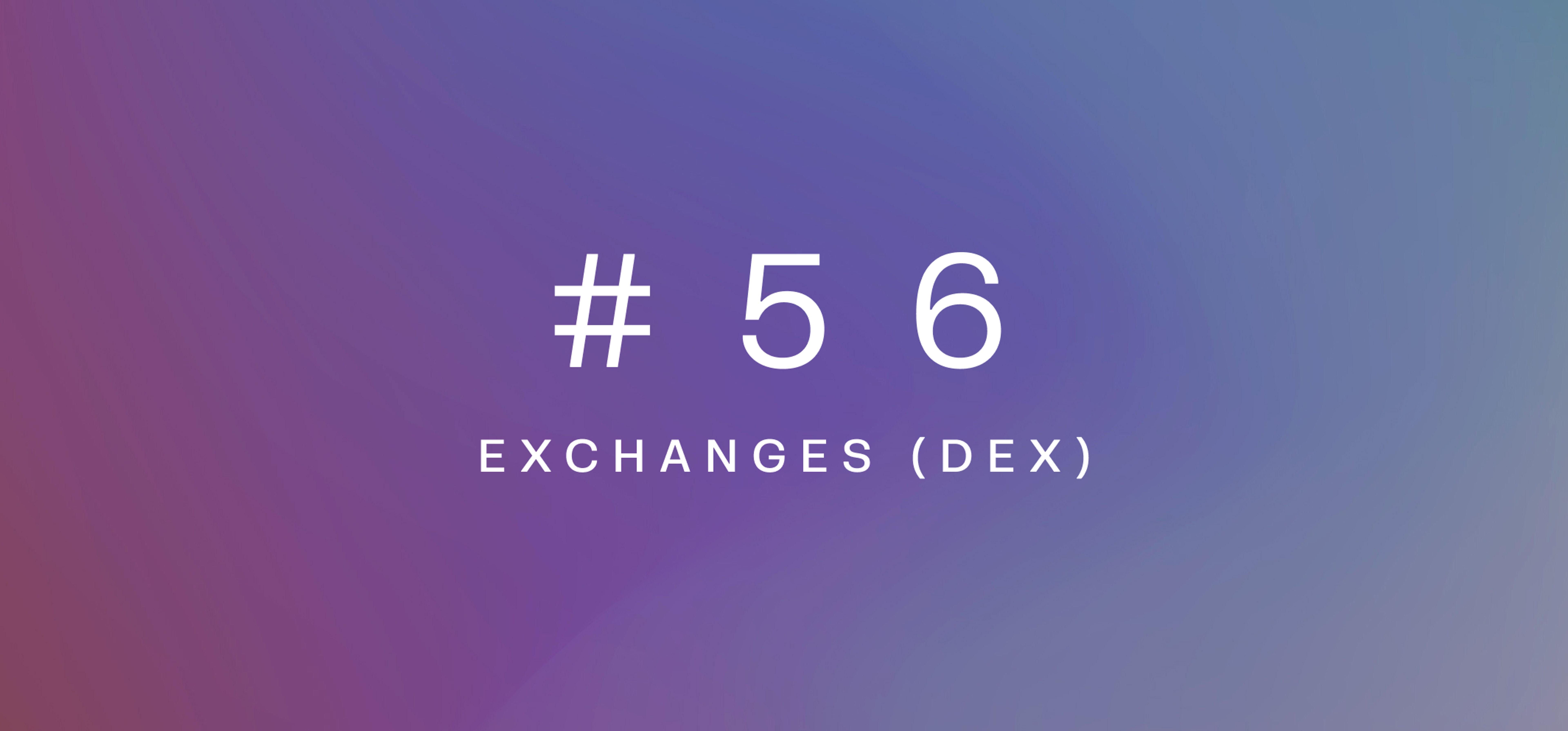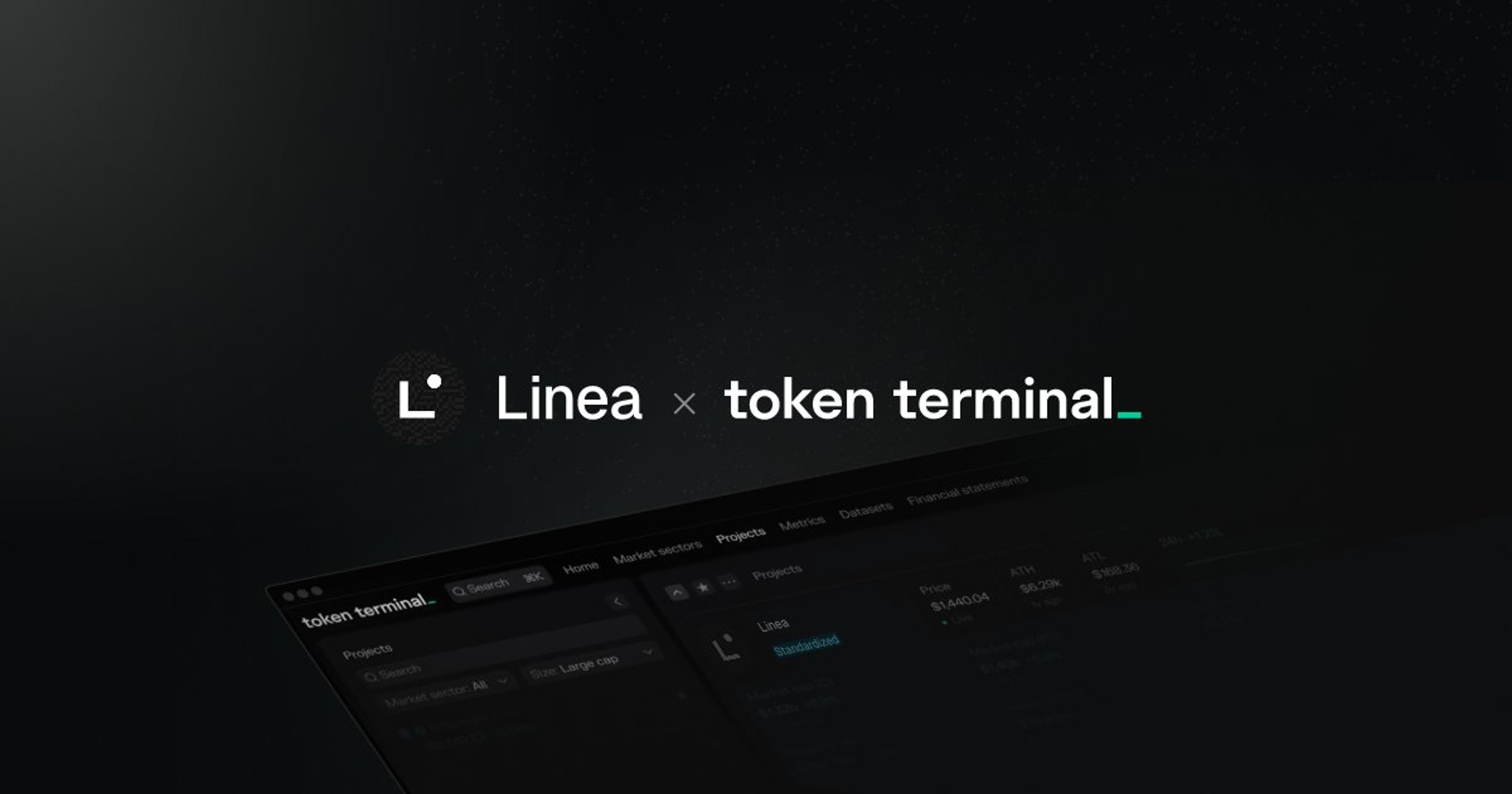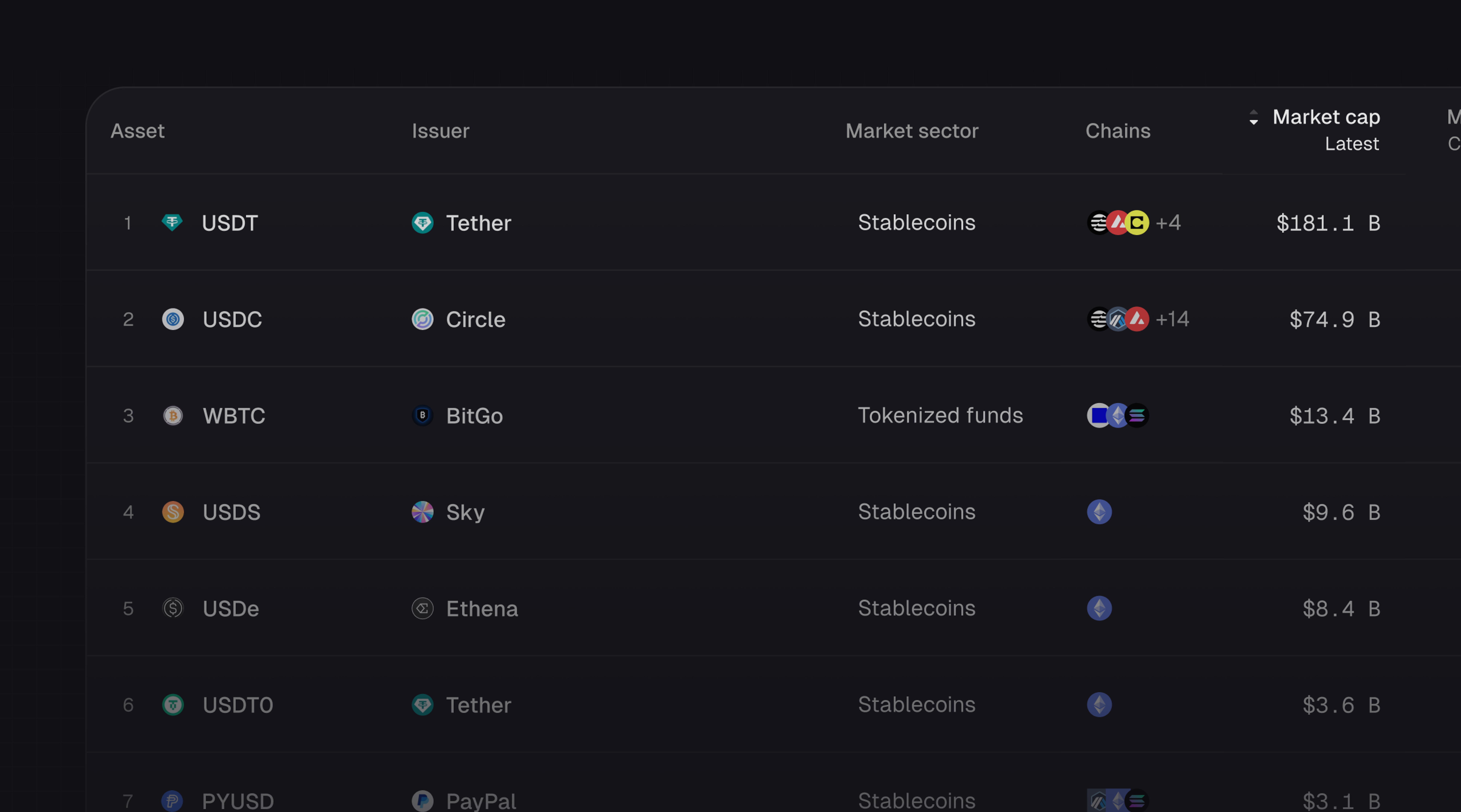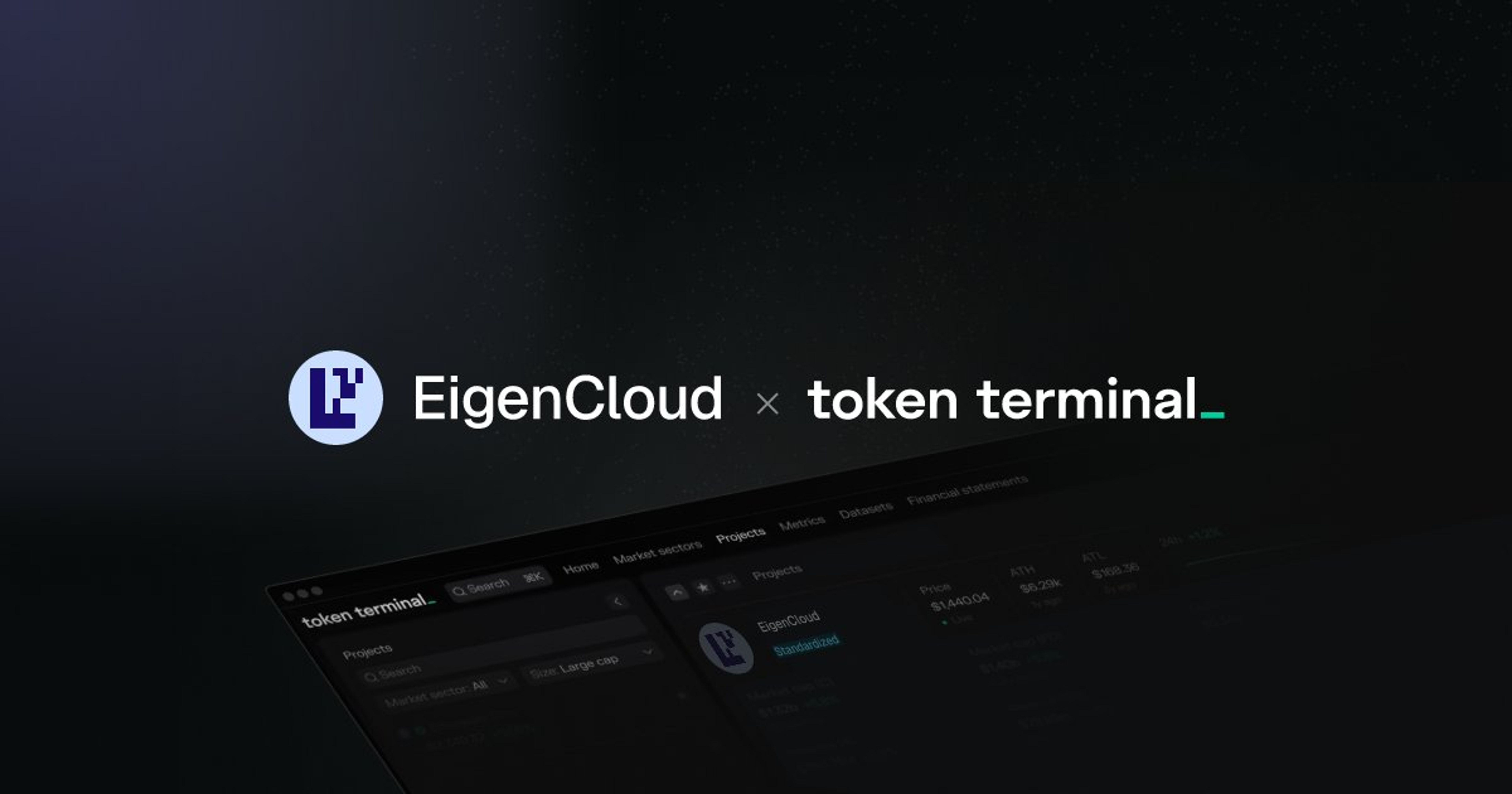Newsletter
Crypto fundamentals – charts and trends to watch

A walkthrough of the most interesting charts and trends in crypto, with a focus on key business drivers and protocol fundamentals.
This week’s newsletter focuses on the Exchanges (DEX) market sector, that has a designated dashboard on Token Terminal. Let’s dig in!
Decentralized exchanges are smart contract-based exchanges that allow for permissionless trading of assets globally.
Overview
Below is visualized the daily trading volumes for the top 20 DEXs over the past year.
Key takeaways:
- Uniswap currently dominates the DEX market in terms of trading volume.
- Trading volume on DEXs has remained relatively consistent throughout the year, with a slight uptick in momentum early this year.
- We can easily identify outlier days where tumultuous market events resulted in high price volatility and trading volumes e.g. in May-22, June-22, Nov-22, and Mar-23.
Underlying data:
24h trading volume / number of unique addresses that made trades on the DEX:
- Wombat Exchange: $20,292,280 / 24
- Zyberswap: $79,565,744/ 447
- DODO: $2,029,126 / 18
- Bancor: $3,557,784 / 53
- CoW Protocol: $43,674,618 / 674
- Tokenlon: $18,973,207 / 329
- Uniswap: $1,713,815,905 / 48,563
- Hashflow: $11,393,840 / 335
- Trader Joe: $74,153,487 / 3,551
- Velodrome $27,388,953 / 1,625
Key takeaways:
- Wombat Exchange, an exchange protocol built on the BNB Chain, has the largest average trade size per user by some margin. Over the past 24h, there were 24 distinct addresses that made trades on the DEX. The low count is explained by the fact that most of the addresses are other aggregators routing trades to Wombat.
- DODO’s trading volume has decreased significantly over the past week, as USDC fell below $1, causing an imbalance in assets in the DODO stablecoin pool.
Average trade size = 24h trading volume / number of unique daily trader addresses.
Underlying data:
24h trading volume / number of unique addresses that made trades on the DEX:
- Uniswap: $1,713,815,905 / 48,563
- PancakeSwap: $141,077,310 / 136,945
- Zyberswap: $79,565,744 / 447
- 0x: $75,510,757 / 18,979
- Trader Joe: $74,153,487 / 3,551
- QuickSwap: $52,161,563 / 4,089
- ParaSwap: $43,966,474 / 5,302
- CoW Protocol: $43,674,618 / 674
- Velodrome: $27,388,953 / 1,625
- Wombat Exchange $845,512 / 24
Key takeaways:
- Low volume per trader could mean that the user base is dominated by retail traders. High volume per trader could mean that the users are institutional traders.
- We can clearly see that the majority of usage on PancakeSwap is retail-driven, with the average trade size per user being $1.03k.
Key Metrics
Below are visualized some of the key metrics for the Exchange (DEX) market sector.
Key takeaways:
- There is a clear power law in DEX trading volume (explained by the USDC depeg spike). In times of uncertainty and volatility, brand moat becomes clear. Uniswap handled $12B in daily volume during the USDC depeg.
- There are 3 aggregators among top 10 DEXs. Aggregators become more popular as assets are located across chains and trading venues.
- 0x and Hashflow are currently the only DEXs that do not charge trading fees. These projects might have raised enough funding to operate without fees and/or they might monetize via other business lines.
- While PancakeSwap has more than 2.5x Uniswap’s daily active users, their trading volume is only ~6% of Uniswap’s. We can clearly see that the majority of usage on PancakeSwap is retail-driven, with the average trade size per user being $1.03k.
- 0x is the only non-AMM DEX in the top 5.
Key takeaways:
- DEXs that generate the most trading fees: Uniswap, PancakeSwap, Trader Joe, SushiSwap, QuickSwap, 1inch, Osmosis, Tokenlon, CoW Protocol.
- Only 5 DEXs generated more than $1m in trading fees over the past 30 days.
- Some DEXs do charge trading fees, but generate 0 revenue (fee switch untouched). These DEXs might currently put a stronger focus on increasing user adoption, and/or they might be holding back revenue-generation for regulatory reasons.
Key takeaways:
- PancakeSwap is the clear leader in terms of revenue generated, since the most widely used DEX, Uniswap, passes on all trading fees to the liquidity providers, and therefore does not generate any revenue.
- It’s noteworthy that even PancakeSwap, as the 2nd biggest DEX, is still heavily reliant on token incentives. This shows that it’s expensive to acquire liquidity, as we can see from the >$20M spent by PancakeSwap over the past 30 days, and it remains to be seen what the margins for running a DEX at scale are.
Key takeaways:
- Osmosis’ high DAU count is partially explained by its DAUs currently being defined as distinct sender addresses on the Osmosis L1 appchain, i.e. not traders on the Osmosis DEX.
- A few DEXs stand out based on the number of active core developers. These teams might have raised funding recently and are building new products, or they might be over hiring? Either way, worth keeping an eye on them.
Video of the week
In this episode of 15-minute fundamentals, we dive into the current state of Allbridge with Co-Founder, Andriy Velykyy.
Timestamps:
00:00 Introduction & what is Allbridge
02:30 What is Allbridge’s purpose?
03:48 Core products & their features (Classic & Core)
07:27 The bridge market & Allbridge’s position within it
12:08 Analyzing the market opportunity
13:50 Technical breakdown of Allbridge Core
16:51 Economic and business models
21:47 Growth drivers and challenges
24:42 Approach to ensuring the technical security of the protocol
26:41 The team behind Allbridge
27:31 Allbridge BaaS
28:18 Cross-chain privacy
29:37 What’s next for Allbridge?
Tweet of the week
Follow us on Twitter for daily updates
1 day after the $ARB airdrop is announced.
— Emperor Osmo 🐂 🎯 (@Flowslikeosmo) March 17, 2023
Daily Active Users had 17% increase over the last 24 hours.
Fees had a 24% increase.
Hype is clearly building.🔥 pic.twitter.com/M5rJwnZjxd
Product tip of the week
Tips for getting the most out of Token Terminal
We’ve added several new metrics to the metrics menu on the left navigation bar on Token Terminal, including:
- Transaction volume
- Trading volume
- Transfer volume
- Assets staked
- Active loans
- Outstanding supply
- Capital deployed
The authors of this content, or members, affiliates, or stakeholders of Token Terminal may be participating or are invested in protocols or tokens mentioned herein. The foregoing statement acts as a disclosure of potential conflicts of interest and is not a recommendation to purchase or invest in any token or participate in any protocol. Token Terminal does not recommend any particular course of action in relation to any token or protocol. The content herein is meant purely for educational and informational purposes only, and should not be relied upon as financial, investment, legal, tax or any other professional or other advice. None of the content and information herein is presented to induce or to attempt to induce any reader or other person to buy, sell or hold any token or participate in any protocol or enter into, or offer to enter into, any agreement for or with a view to buying or selling any token or participating in any protocol. Statements made herein (including statements of opinion, if any) are wholly generic and not tailored to take into account the personal needs and unique circumstances of any reader or any other person. Readers are strongly urged to exercise caution and have regard to their own personal needs and circumstances before making any decision to buy or sell any token or participate in any protocol. Observations and views expressed herein may be changed by Token Terminal at any time without notice. Token Terminal accepts no liability whatsoever for any losses or liabilities arising from the use of or reliance on any of this content.
Stay in the loop
Join our mailing list to get the latest insights!
Continue reading

Customer stories: Token Terminal’s Data Partnership with Linea
Through its partnership with Token Terminal, Linea turns transparency into a competitive advantage and continues to build trust with its growing community.

Introducing Tokenized Assets
Token Terminal is expanding its standardized onchain analytics to cover the rapidly growing category of tokenized real-world assets (RWAs) – starting with stablecoins, tokenized funds, and tokenized stocks.

Customer stories: Token Terminal’s Data Partnership with EigenCloud
Through its partnership with Token Terminal, EigenCloud turns transparency into a competitive advantage and continues to build trust with its growing community.